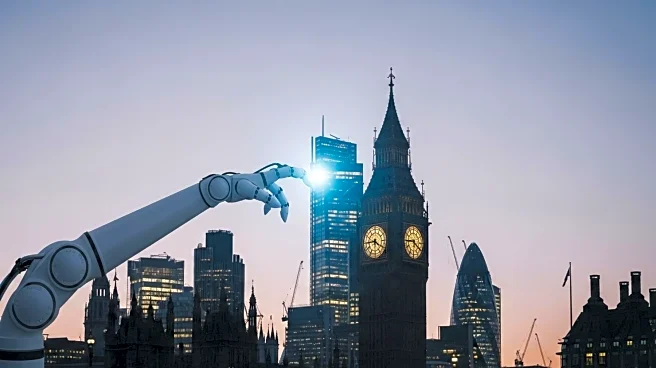What is the story about?
What's Happening?
Research suggests that nearly a million jobs in London could be transformed by AI, affecting roles such as telemarketers, bookkeepers, and data entry specialists. The number of job adverts for positions vulnerable to AI's impact has decreased by 38% compared to three years ago. Companies like Amazon, JP Morgan, Microsoft, and Ford predict AI will affect jobs, with AI taking over mundane repetitive tasks. The NHS is using AI to improve efficiency in drug dispensing, demonstrating AI's potential to enhance workflows without replacing jobs.
Why It's Important?
AI's impact on the job market is significant, as it can transform roles and improve efficiency across various industries. While AI may reduce the need for certain repetitive tasks, it also offers opportunities for upskilling and creating new roles that require human creativity and judgment. The adoption of AI can lead to increased productivity and better outcomes, but it also raises concerns about job displacement and gender disparity. Companies must consider how to integrate AI without exacerbating existing inequalities.
What's Next?
Organizations need to rethink their use of AI and identify tasks that are best automated versus those requiring human input. As AI continues to evolve, businesses must adapt their strategies to ensure a balanced workforce and avoid gaps in future talent. The focus should be on complementing AI adoption with human skills and creativity.
Beyond the Headlines
AI's integration into the workforce requires careful consideration of ethical and social implications. Ensuring equitable access to AI-driven opportunities and addressing potential disparities is crucial for fostering a fair and inclusive job market.















